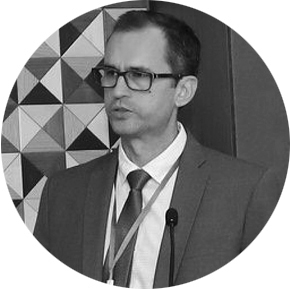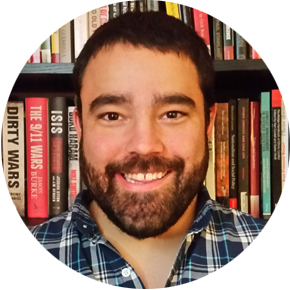Mediamax’s interview with Egor Zaitsev, World Health Organization (WHO) representative, Head of WHO Armenia Country Office.
Many blame WHO for serious shortcomings in the management of this pandemic. Could WHO have done better? Are current structures up to the tasks of this pandemic?
Since the beginning, WHO has been fighting the pandemic with every ounce of our soul and spirit. We will continue to do that until the end. That’s our commitment to the whole world. We will continue to work with every country and every partner, to serve the people of the world, with a relentless commitment to science, solutions and solidarity.
In due course, WHO’s performance in tackling this pandemic will be reviewed by WHO’s Member States and the independent bodies that are in place to ensure transparency and accountability. This is part of the usual process put in place by our Member States. Areas for improvement will likely be identified and there will be lessons for all of us to learn. We are keen for an after-action review to happen but now is not the time, now is the time to fight the virus and save lives.
What are WHO actions in order to find treatment and/or vaccine for COVID-19?
The Solidarity trial is an international clinical trial to help find an effective treatment for COVID-19, launched by WHO and Member States in March 2020. There are other trials on-going around the globe beyond the Solidarity trial. As of 1 July, nearly 100 countries in all 6 WHO regions have joined or in the process of joining. Thirty-nine countries have approvals, of which 21 have already actively recruited patients across 351 hospitals, involving over 1200 clinical researchers. In all, nearly 5500 hospitalized COVID-19 patients have been randomized.
An interim trial analysis will be produced and will be monitored by an independent group of experts as the global Data and Safety Monitoring Committee.
A Solidarity trial for vaccine development has been launched, in addition to the one for therapeutics. This large, international, multi-site, individually randomized controlled clinical trial will enable the concurrent evaluation of the benefits and risks of each promising candidate vaccine within 3-6 months of it being made available for the trial.
There are currently 19 vaccines in clinical trial. We expect more to follow as there are nearly 150 candidate vaccines in total.
From the second research and innovation forum, 1-2 July: We have 4 kinds of vaccine candidates in the pipeline: virus vaccines using live attenuated virus, viral vector vaccines, nucleic acid based vaccines (DNA/RNA vaccines) and protein vaccines. This robust vaccine pipeline gives us hope, even if there many unpredictable factors which will determine their success.
The developers of 15 vaccines in clinical trial presented their phase III designs at a forum on convened by WHO on 1-2 July. WHO maintains a draft landscape of candidate vaccines. There are also target product profiles for COVID-19 vaccines, developed through a consultation with global experts. We have also published the criteria for prioritization of vaccines for clinical trials.
If a vaccine arrives, who should be the first to receive the vaccination?
The distribution of vaccines is a very important topic that WHO is working with Member States to address. WHO, along with Gavi and CEPI as part of the ACT Accelerator, is presently working on a proposal for a fair and equal allocation mechanism, which will be discussed by Member States. This addresses the issue of who would have priority in accessing the vaccine first, e.g. healthcare workers, essential workers, and other vulnerable populations, and how groups could be progressively prioritized as more doses become available.
Can WHO influence national authorities to take stricter measures?
WHO recommends a range of measures including testing, physical distancing, isolation of positive cases and quality hospital care for those who need it. Each country decides what actions to take based on their own situation and the different stages of the outbreak they are facing. These decisions must take into account many factors including resources and capacities as well as community engagement and trust.
What can you say about the situation in Armenia? What is the reason the we have so many cases in our small country?
The situation in Armenia is close to critical but seems it is under control. There can be many variables that influence the epidemic situation development in the country. In this situation it is very important to ensure cooperation between all the sectors and stakeholders in the country, because we are in the same boat and we should overcome this challenge together.
WHO cooperates with the government to synergize the efforts and bring better results. For instance, we have Italian, German and Polish emergency medical teams that are classified by WHO. They are currently working or going to work in Armenian hospitals where the patient with Covid-19 receive treatment. Also recently we had WHO mission that looked at different aspects that could be strengthen in COVID-response including surveillance, testing, risk communication, health system strengthening.
Is there any country in the world that have the “best practice” in regard the fight against pandemic?
The situation is rather looking like megaphone not the sprint! We are still far from the point to consider that the pandemic is over, therefore it is still too early to evaluate actions and achievements of particular country. Of course, there are countries that have managed to achieve better results at this stage of the pandemic, but given that we still have many challenges to overcome, such as the second wave of the virus, it is too early to talk about "best practices". In fact, instead of judgeing now, it is much more important to focus our efforts on strengthening the health infrastructure, raising people's social responsibilty and become more prepared to face the chalanges caused by this pandemic.




























Comments
Dear visitors, You can place your opinion on the material using your Facebook account. Please, be polite and follow our simple rules: you are not allowed to make off - topic comments, place advertisements, use abusive and filthy language. The editorial staff reserves the right to moderate and delete comments in case of breach of the rules.